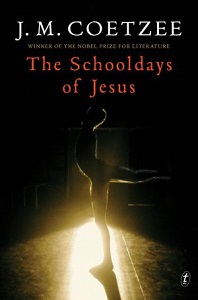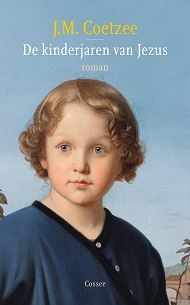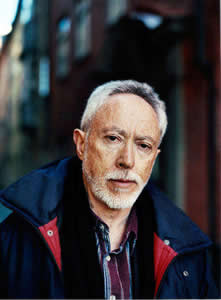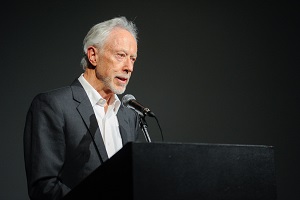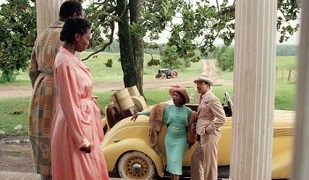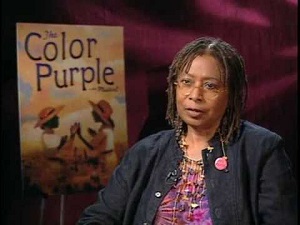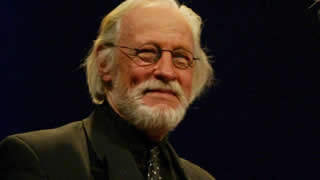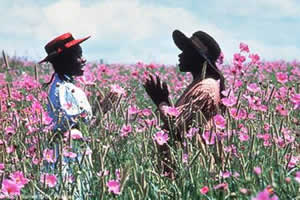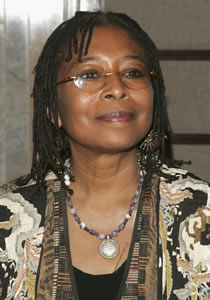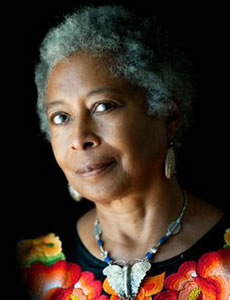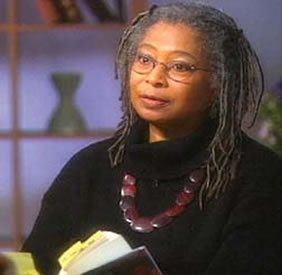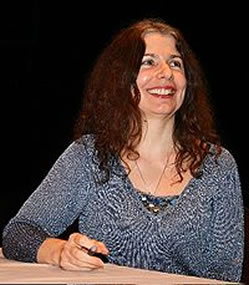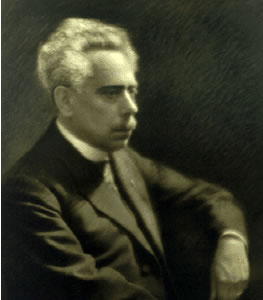De Amerikaanse schrijfster en feministe Alice Malsenior Walker werd geboren op 9 februari 1944 in Eatonton, Georgia. Zie ook mijn blog van 9 februari 2008 en ook mijn blog van 9 februari 2009.
Uit: We are the Ones We Have Been Waiting For
„It is the worst of times. It is the best of times. Try as I might I cannot find a more appropriate opening for this volume: it helps tremendously that these words have been spoken before and, thanks to Charles Dickens, written at the beginning of A Tale of Two Cities. Perhaps they have been spoken, written, thought, an endless number of times throughout human history. It is the worst of times because it feels as though the very Earth is being stolen from us, by us: the land and air poisoned, the water polluted, the animals disappeared, humans degraded and misguided. War is everywhere. It is the best of times because we have entered a period, if we can bring ourselves to pay attention, of great clarity as to cause and effect. A blessing when we consider how much suffering human beings have endured, in previous millennia, without a clue to its cause. Gods and Goddesses were no doubt created to fill this gap. Because we can now see into every crevice of the globe and because we are free to explore previously unexplored crevices in our own hearts and minds, it is inevitable that everything we have needed to comprehend in order to survive, everything we have needed to understand in the most basic of ways, will be illuminated now. We have only to open our eyes, and awaken to our predicament. We see that we are, alas, a huge part of our problem. However: We live in a time of global enlightenment. This alone should make us shout for joy.”
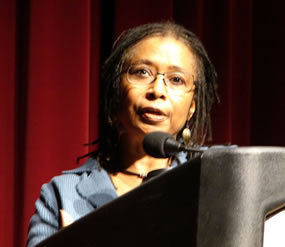
Alice Walker (Eatonton, 9 februari 1944)
De Franse schrijfster Alina Reyes (pseudoniem van Aline Patricia Nardone) werd geboren op 9 februari 1956 in Bruges. Zie ook mijn blog van 9 februari 2008 en ook mijn blog van 9 februari 2009.
Uit: Le carnet de Rrose
“Je préfère de beaucoup les hommes qui ne sont pas persuadés de leur excellence, ou qui ne s’imaginent pas en savoir assez. Je les aime souples d’esprit, prêts à communiquer leurs goûts, leurs désirs, leur expérience, mais aussi à accepter mes propres envies et fantaisies. Sans se sentir humiliés par certains gestes ou certaines demandes qui les mettent, le temps d’un round parmi d’autres, dans une situation plus féminine que virile. Je les aime capables d’autorité mais aussi d’abandon. Je les aime, je les aime profondément tels qu’ils sont venus au monde, dans leur brutale innocence.”
(…)
“Il y en avait un qui recelait de drôles de fantasmes. Jouer au viol, de l’une par l’un ou de l’un par l’une. La femme en lui croyait que la femme cherchait l’envahissement par le viol. La femme en moi veut l’envahissement par l’amour, je le lui ai montré et fait, il a compris.”
Alina Reyes (Bruges, 9 februari 1956)
De Japanse schrijver Natsume Sōseki werd g geboren als Natsume Kinnosuke op 9 februari 1867 in Edo. Zie ook mijn blog van 9 februari 2009
Uit: Kokoro (Vertaald door Edwin McClellan)
„I ALWAYS called him “Sensei.” I shall therefore refer to him simply as “Sensei,” and not by his real name. It is not because I consider it more discreet, but it is because I find it more natural that I do so. Whenever the memory of him comes back to me now, I find that I think of him as “Sensei” still. And with pen in hand, I cannot bring myself to write of him in any other way.
It was at Kamakura, during the summer holidays, that I first met Sensei. I was then a very young student. I went there at the insistence of a friend of mine, who had gone to Kamakura to swim. We were not together for long. It had taken me a few days to get together enough money to cover the necessary expenses, and it was only three days after my arrival that my friend received a telegram from home demanding his return. His mother, the telegram explained, was ill. My friend, however, did not believe this. For some time his parents had been trying to persuade him, much against his will, to marry a certain girl. According to our modern outlook, he was really too young to marry. Moreover, he was not in the least fond of the girl. It was in order to avoid an unpleasant situation that instead of going home, as he normally would have done, he had gone to the resort near Tokyo to spend his holidays. He showed me the telegram, and asked me what he should do. I did not know what to tell him. It was, however, clear that if his mother was truly ill, he should go home. And so he decided to leave after all. I, who had taken so much trouble to join my friend, was left alone.
There were many days left before the beginning of term, and I was free either to stay in Kamakura or to go home. I decided to stay. My friend was from a wealthy family in the Central Provinces, and had no financial worries. But being a young student, his standard of living was much the same as my own. I was therefore not obliged, when I found myself alone, to change my lodgings.“
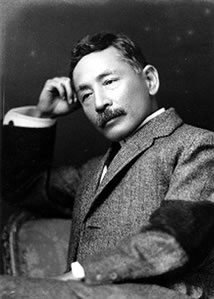
Natsume Sōseki (9 februari 1867 – 9 december 1916)
De Nederlandse dichter en schrijver Herman Pieter de Boer werd geboren op 9 februari 1928 in Rotterdam. Zie ook mijn blog van 9 februari 2007 en ook mijn blog van 9 februari 2008 en ook mijn blog van 9 februari 2009.
Uit: De onvergetelijkheden van Hillegersberg
„Ergens in de herfst van 1934 stak er een geweldige storm op. Het water in de Hoyledesingel tuimelde over zijn eigen golven, de jonge oeverboompjes bogen angstig. De wind ranselde een wanhopig flappende kartonnen doos over straat, een houten hekje sloeg radeloos open en dicht, ginds kletterde een ruit stuk. De muts was me van het hoofd gerukt, de stormwind joeg en jankte. Ik vluchtte het portiek in van de winkel tegenover de kerk. Daar bleef ik staan, rillend, met mijn armen om mezelf geslagen, bang ventje van zes…
…De slagersjongen kwam naar beneden uit de Kerkstraat, de wind pakte de fietsmand en daar zeilde hij naar links tegen het kerkehek, een grote klap, alles ondersteboven….
…Ik beet op mijn lip, keek weer schuw naar de straat, naar de Hillegondakerk, en toen gebeurde het wonder. Met de hand aan haar hoed, voorovergebogen, kwam een dame de hoek om. Was zij het werkelijk?…
…Ik had een wollen bivakmuts gekregen. alleen mijn neus, ogen en mond waren bloot, en als ik niet hoefde te praten, trok ik hem op tot over mijn neus, want het was erg koud. Ik stond op de hoek van de Berglustlaan en keek naar een grote kraai die zwart afstak tegen de besneeuwde boom waar hij in zat…
…Gelukkig ebde de onrust weer weg. Een neef van Ma was aan de Hoyledesingel komen wonen met zijn vrouw en kinderen. Ma moest altijd lachen om de lange oom Rients. Die lui hadden in Indië gewoond, langs de trapmuur kronkelde een slangevel omhoog, hier hingen een paar krissen, daar wajangpoppen, en oom Rients had verhalen uit de Oost, hij deed Javanen na met rollende r’s en rollende ogen. Op vrijdagavond kwamen ze vaak bridgen. Ma vond het nu weer gezellig in Hillegersberg. Pa opgelucht! De kinderen blij! Want al was het huis niet groot, de omgeving was geweldig. Als er geen geruchten waren over de Ziekte van Weil, kon je lekker naar openluchtzwembad ’t Zwarte Plasje…
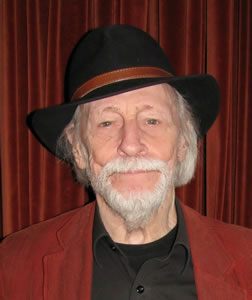
Herman Pieter de Boer (Rotterdam, 9 februari 1928)
De Vlaamse schrijver Maurits Sabbe werd op 9 februari 1873 te Brugge geboren. Zie ook mijn blog van 9 februari 2007 en ook mijn blog van 9 februari 2009.
Uit: Brugsche Liederen over den Veldtocht van Frederik Hendrik in Vlaanderen (1631)
„In 1631 ondernam Frederik Hendrik in Vlaanderen een veldtocht, die op een totale mislukking uitliep.
Het doel was Duinkerken te overmeesteren. Zooals wij het reeds in een vorig hoofdstuk schreven, maakte deze stad de zee onveilig voor den Hollandschen handel en veroorzaakte aan de Staten-Generaal groote onkosten, door hen te verplichten de koopvaardijschepen te laten convoyeeren.
De prins liet eenige troepen liggen te Wezel en bij de Schencke-schans om de Hollandsche grenzen te verzekeren, en met het gros van zijn leger trok hij naar Vlaanderen.
Hij scheepte in met 250 vendelen voetvolks, 70 cornetten ruiters en 50 stuks geschut; landde te Watervliet en rukte op naar Brugge, waar hij een viertal dagen voor de wallen bleef liggen.
Daar vernam hij echter, dat het leger van den Spaanschen koning op hem afkwam, ten getale van 17.000 man voetvolk, 5000 ruiters en 43 stuks geschut. De prins vond het geraadzaam die aanzienlijke macht niet af te wachten en vertrok, weer inschepende om zich m veiligheid te gaan leggen te Druynen bij Heusden en te Oostgeest bij Bergen op Zoom.
De aftocht van het prinselijk leger wekte niet alleen veel vreugde in Vlaanderen en Brabant, maar prikkelde ook den spotlust onzer voorouders, die in deze gebeurtenis een welgekomen gelegenheid vonden om zich over den geduchten Hollandschen veldheer vroolijk te maken.“
Maurits Sabbe (9 februari 1873 – 12 februari 1938)
